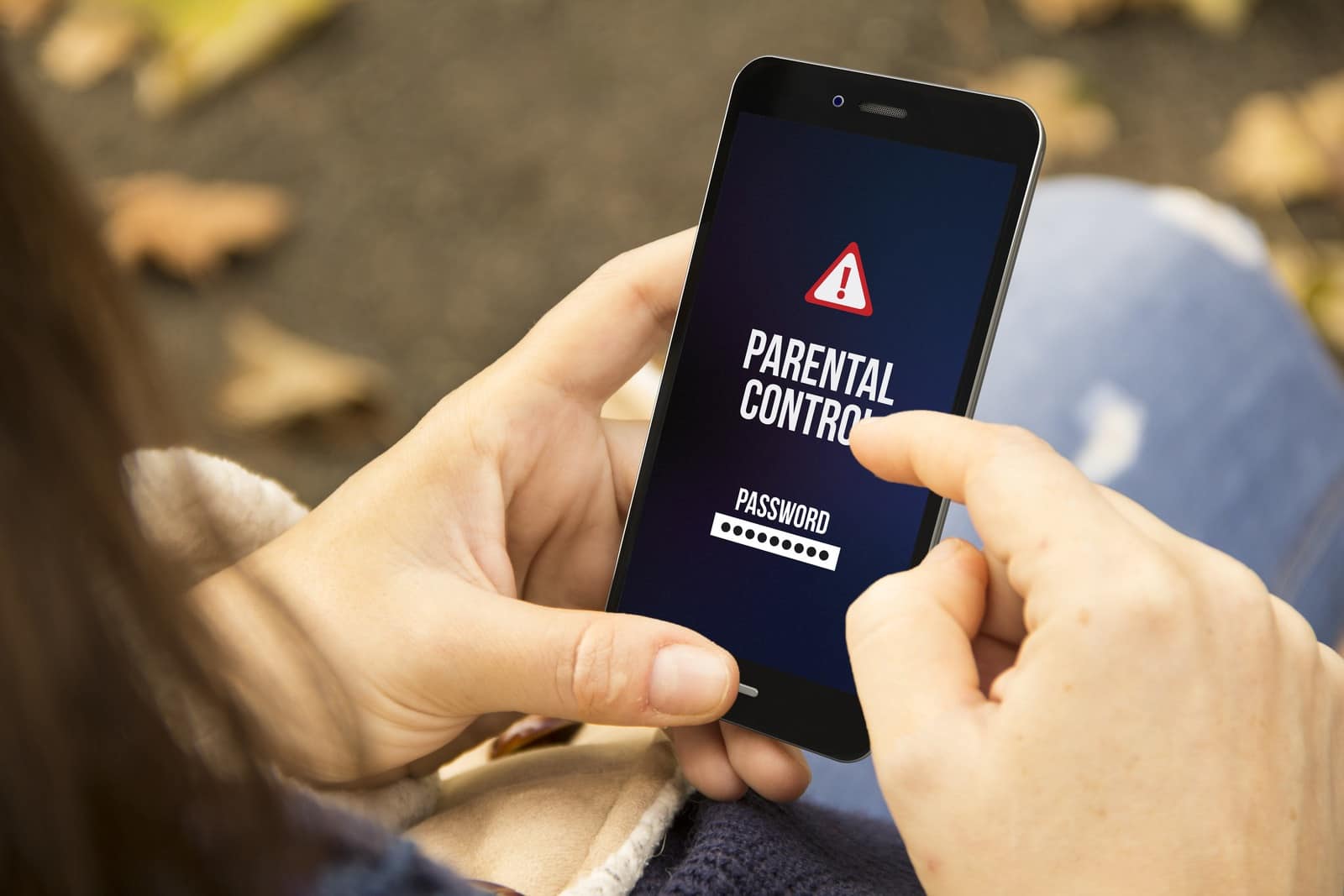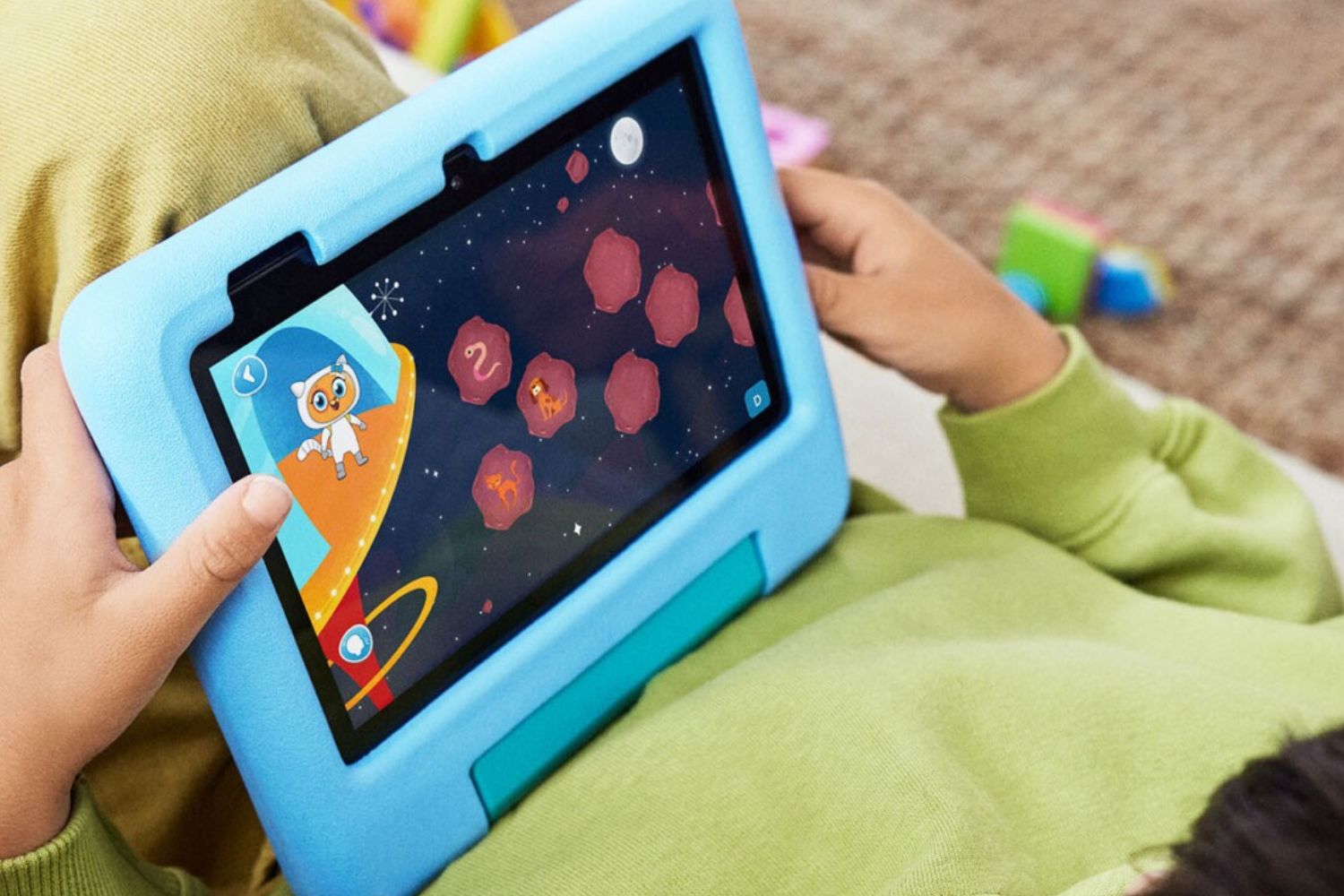Introduction:
Online gaming has become a popular form of entertainment for people of all ages, including children. While gaming can provide numerous benefits, such as improving problem-solving skills and encouraging teamwork, it also comes with its own set of risks. As a parent, it is essential to be aware of what your child is exposed to while gaming online, particularly when it comes to their conversations with other players.
This article aims to provide valuable insights and guidance on how to effectively monitor your kids’ online gaming conversations. By doing so, you can ensure their safety and protect them from potential threats, such as cyberbullying and inappropriate content.
As a responsible parent, monitoring your children’s online activities is crucial. However, it is important to approach this issue with balance, respect, and understanding. The goal is not to hover over them or invade their privacy, but rather to establish appropriate boundaries and create a safe and nurturing gaming environment. Open communication and mutual trust are key elements in achieving this goal.
In the following sections, we will delve into various strategies and tools that can help you monitor your kids’ online gaming conversations effectively. We will explore setting up parental controls, reviewing game ratings and age recommendations, choosing age-appropriate games, utilizing parental monitoring software, and talking to your children about online gaming safety. Additionally, we will discuss tips for effective monitoring, recognizing signs of cyberbullying or inappropriate behavior, and how to respond if such situations arise.
By educating yourself and implementing the suggested strategies, you can ensure that your children are engaging in online gaming in a safe and secure environment. Let’s dive into the details and equip ourselves with the knowledge to protect our kids from potential online hazards.
Why Monitor Kids Online Gaming Conversations:
As a parent, you might wonder why it is necessary to monitor your kids’ online gaming conversations. Here are several key reasons why this monitoring is important:
- Protection from cyberbullying: Online gaming platforms can unfortunately be breeding grounds for cyberbullying. By monitoring your children’s conversations, you can identify signs of bullying behavior and take necessary actions to protect them from harm.
- Prevention of inappropriate content exposure: Online games often have chat features that allow players to interact with each other. This opens the door for the potential exposure to inappropriate language, conversations, or even explicit content. Monitoring your kids’ conversations helps ensure they are not subjected to such materials.
- Maintaining privacy and personal information: Online gaming can sometimes involve sharing personal information unknowingly. Through monitoring, you can guide your children on best practices for protecting their privacy and teach them to be cautious about sharing personal details with strangers.
- Promoting positive behavior and etiquette: By frequently checking their gaming conversations, you can encourage your kids to display good sportsmanship, practice proper gaming etiquette, and treat others with respect. This helps foster a positive online gaming community and sets a good example for their interactions with others.
- Identifying potential online predators: Sadly, online predators can use gaming platforms as a means to exploit vulnerable children. Monitoring your kids’ conversations allows you to quickly identify and report suspicious contacts or individuals who may pose a risk to their safety.
By monitoring your children’s online gaming conversations, you can ensure their well-being, protect them from harmful influences, and guide them in developing a responsible and safe online presence. It is important to be mindful and strike a balance between respecting their privacy and ensuring their safety. With the right tools and strategies in place, you can create a secure gaming environment for your children to enjoy while providing you with peace of mind.
Setting Up Parental Controls:
One of the first steps in ensuring your children’s safety while gaming online is to set up parental controls. These controls allow you to manage and regulate the content and features accessible to your kids. Here are some guidelines for setting up effective parental controls:
- Explore the gaming platform’s built-in parental controls: Most gaming consoles and platforms offer built-in parental control settings that allow you to restrict certain features, control communication options, and set time limits. Familiarize yourself with these settings and customize them according to your children’s age and maturity level.
- Use age-restriction settings: Many games have age restrictions and content ratings. Take advantage of these settings to ensure that your children can only access age-appropriate games. This helps filter out games that are not suitable for their age group and reduces potential exposure to inappropriate content.
- Manage chat and communication settings: Monitor and restrict your children’s communication options. Limit chat functionality to friends only or disable it altogether for younger children. This prevents them from engaging in conversations with strangers and minimizes the risk of cyberbullying or inappropriate interactions.
- Set time limits: Excessive gaming can negatively impact your children’s overall well-being, including their physical health and academic performance. Use parental controls to set time limits on gaming sessions, ensuring a healthy balance between gaming and other activities.
- Regularly review and update settings: As your children grow older and their gaming habits change, it is important to regularly review and update the parental control settings accordingly. Stay informed about the latest features and options available, and adapt as necessary to continue providing a safe gaming environment.
Implementing parental controls helps you establish clear boundaries and guidelines for your children’s online gaming activities. However, it is important to remember that no tool or setting can substitute for open communication and regular monitoring. Parental controls serve as an additional layer of protection, but it is still essential to actively participate in your children’s gaming experiences and conversations to ensure their maximum safety and well-being.
Reviewing Game Ratings and Age Recommendations:
When it comes to choosing age-appropriate games for your children, it is crucial to review game ratings and age recommendations. Gaming industry organizations, such as the Entertainment Software Rating Board (ESRB) and Pan European Game Information (PEGI), provide informative ratings that help parents make informed decisions. Here are some reasons why reviewing game ratings and age recommendations is important:
- Evaluating content suitability: Game ratings provide detailed information about the content within a game, including violence, language, sexual themes, and more. By reviewing these ratings, you can gauge whether the game is appropriate for your child’s age and maturity level.
- Understanding interactive elements: In addition to content, ratings also indicate interactive elements such as online communication, in-app purchases, and user-generated content. This information enables you to assess the potential risks associated with the game and make an informed decision.
- Ensuring emotional readiness: Different games cater to different emotional and cognitive capacities. By considering age recommendations, you can ensure that the games your children play align with their emotional readiness. This helps protect them from exposure to themes or situations that they may not be prepared to handle.
- Prioritizing educational and skill-building games: Game ratings often highlight educational aspects or skill-building features of a game, making it easier for parents to find games that promote learning and growth. This ensures that your children’s gaming experiences not only provide entertainment but also foster their development.
- Engaging in shared interests: Taking into account game ratings and age recommendations allows you to choose games that align with your children’s interests and hobbies. This enhances their enjoyment and engagement in gaming, creating a positive and rewarding experience.
Reviewing game ratings and age recommendations empowers you to make informed choices about the games your children play. It helps you tailor their gaming experiences to their individual needs and ensures that they are engaging with content that is suitable and safe. However, it is important to remember that ratings are just guidelines, and it is still essential to actively participate in your children’s gaming experiences and conversations to ensure their maximum safety and well-being.
Choosing Age-Appropriate Games:
Selecting age-appropriate games for your children is essential to ensure that their gaming experiences are enjoyable, educational, and safe. Here are some key factors to consider when choosing games for your kids:
- Read game reviews and descriptions: Before purchasing or allowing your children to play a particular game, take the time to read reviews and descriptions. This will give you a better understanding of the game’s content, gameplay mechanics, and potential risks.
- Consider their interests and preferences: Involve your children in the decision-making process by considering their interests and preferences. Choosing games that align with their hobbies or favorite characters helps to maintain their enthusiasm and engagement.
- Look for educational value: Seek out games that have educational value or promote skill-building. Many games offer opportunities for problem-solving, critical thinking, creativity, and knowledge acquisition. These types of games can provide both entertainment and learning experiences.
- Pay attention to multiplayer options: If your children enjoy playing games with others, ensure that the game’s multiplayer options are safe and well-regulated. Look for games that have robust parental control settings, strict chat filters, and limited interaction with strangers.
- Consider game genres: Different game genres cater to different age groups and interests. For younger children, choose games that focus on simple gameplay and age-appropriate themes. As they grow older, you can gradually introduce them to more complex and challenging games.
- Be aware of in-game purchases: Some games offer in-game purchases, such as virtual currencies or additional content. Make sure to review the game’s monetization features and decide if it aligns with your budget and your willingness to allow your children to make such purchases.
Ultimately, the goal is to find games that provide a positive and enjoyable gaming experience while aligning with your children’s age, interests, and values. Regularly engage with your kids about the games they play and encourage open discussions about any concerns or experiences they may have while playing. By actively participating in the selection process and fostering open communication, you can ensure that the games your children engage with are age-appropriate, enriching, and safe.
Using Parental Monitoring Software:
Parental monitoring software can be a valuable tool to help you keep track of your children’s online gaming activities and conversations. Here are some key points to consider when using parental monitoring software:
- Research and choose a reputable software: Take the time to research and select a reliable parental monitoring software that suits your needs. Look for features such as chat monitoring, activity logs, and real-time alerts to ensure effective monitoring.
- Install and set up the software correctly: Follow the instructions provided by the software company to install and set up the monitoring software properly. This may involve creating user profiles for your children, enabling chat monitoring, and specifying the types of conversations or keywords you want to be notified about.
- Regularly review activity logs and reports: Monitor your children’s activity logs and reports provided by the monitoring software. This will give you insights into their online behavior, including the games they play, the people they interact with, and the conversations they have. Regularly reviewing these logs allows you to identify any potential risks or concerns that need to be addressed.
- Communicate openly with your children: Explain to your children that you will be monitoring their online gaming activities and conversations. Encourage open and honest conversations about why this monitoring is important for their safety and well-being. Establishing trust and open communication is crucial to ensure they understand the purpose behind the monitoring software.
- Respect privacy and use monitoring software responsibly: While monitoring is essential, it is equally important to respect your children’s privacy and avoid invasive monitoring practices. Strike a balance between protecting their safety and fostering their independence. Avoid using information obtained through monitoring software to invade their privacy or engage in unnecessary confrontation.
- Stay informed and update the software: Keep the monitoring software up to date by installing the latest updates and patches. This ensures that the software continues to function effectively and provides you with the most accurate and reliable monitoring capabilities.
Parental monitoring software can be a helpful tool in keeping your children safe while they engage in online gaming. However, it should be used in conjunction with other monitoring strategies and approaches, such as open communication and setting boundaries. It is essential to strike a balance between monitoring and respecting your children’s privacy to maintain a healthy parent-child relationship.
Talking to Kids About Online Gaming Safety:
Engaging in open and honest conversations with your children about online gaming safety is crucial to ensure they understand the potential risks and how to protect themselves. Here are some important points to discuss with your kids:
- Establish clear guidelines and expectations: Explain to your children what behaviors are acceptable and appropriate while gaming online. Discuss the importance of treating others with respect, refraining from sharing personal information, and following the rules and guidelines of the gaming platform.
- Address the risks of interacting with strangers: Emphasize the importance of caution when interacting with strangers online. Teach your children to never disclose personal information, such as their name, address, school, or phone number, to anyone they meet while gaming. Encourage them to only communicate with people they know in real life or with trusted friends.
- Educate about the dangers of cyberbullying: Discuss what cyberbullying is and its potential consequences. Teach your children to recognize signs of cyberbullying, such as offensive language, insults, or repeated negative behavior. Empower them to report any instances of cyberbullying immediately and encourage open communication with you about such incidents.
- Promote responsible online behavior: Teach your children about responsible online behavior and the potential impact their words and actions can have on others. Encourage them to be positive, helpful, and respectful towards their fellow gamers. Remind them that everyone is entitled to have fun and enjoy the game without harassment or bullying.
- Discuss the importance of privacy settings: Explain to your children the significance of privacy settings within gaming platforms. Teach them how to manage their privacy settings effectively, including enabling features that filter out inappropriate language or restrict communication with non-friends.
- Encourage reporting of inappropriate behavior: Let your children know that they can approach you if they encounter any inappropriate or concerning behavior while gaming. Teach them the importance of reporting such incidents to the game’s moderators or to you, so appropriate action can be taken.
Regularly check in with your children about their online gaming experiences and encourage them to share any concerns or incidents with you. By fostering open communication, you can help protect your children from potential dangers and create a safer gaming environment for them.
Monitoring Gaming Conversations:
Monitoring your children’s gaming conversations is an essential part of ensuring their safety while gaming online. By actively tracking their interactions, you can identify potential risks, protect them from harm, and promote positive behavior. Here are some effective strategies for monitoring gaming conversations:
- Be familiar with the game: Take the time to familiarize yourself with the game your children are playing. Understand its features, communication options, and potential risks associated with the game. This will allow you to better monitor and assess the conversations they engage in.
- Keep gaming devices in common areas: Encourage your children to play games in common areas of the house, rather than in their bedrooms or isolated spaces. This allows you to easily glance at their conversations and be more aware of who they are interacting with.
- Set guidelines for online communication: Establish clear guidelines for your children’s online communication. This includes defining what is appropriate conversation, who they can communicate with, and how to handle inappropriate or uncomfortable situations. Regularly remind them of these guidelines to reinforce safe behaviors.
- Monitor chat logs and messages: Review the chat logs and messages between your children and other players. Pay attention to the language used, any signs of inappropriate behavior, or conversations that make your child uncomfortable. Keep an eye out for potential red flags, such as requests for personal information or aggressive behavior.
- Use parental control features: Take advantage of the parental control features available on gaming platforms. Enable options that allow you to restrict chat functionality, filter out profanity, or limit interaction to approved friends. Regularly review and update these settings as your children’s needs and maturity level change.
- Keep an open line of communication: Foster open communication with your children and create an environment where they feel comfortable discussing their online experiences with you. Encourage them to share any concerns or incidents they encounter while gaming. This open dialogue will help you better monitor and address any potential risks they may face.
Monitoring your children’s gaming conversations is not about invading their privacy, but rather about keeping them safe and protected. It is important to strike a balance between monitoring their conversations and maintaining their trust. Regularly communicate with them about the importance of online safety and the reasons behind monitoring their gaming conversations. By doing so, you can create a secure gaming environment and ensure their well-being while they enjoy their online gaming experiences.
Tips for Effective Monitoring:
Monitoring your children’s online gaming activities requires a thoughtful and proactive approach. Here are some tips to ensure effective monitoring and maximize your children’s safety:
- Stay informed: Stay up-to-date with the latest trends in online gaming and technology. This will help you understand the risks associated with different games and platforms, enabling you to make more informed decisions regarding monitoring and safety measures.
- Set clear expectations: Clearly communicate your expectations regarding online gaming behavior and conversation to your children. Explain the importance of being respectful, cautious, and honest while interacting with others online.
- Establish time limits: Set appropriate time limits for gaming sessions to prevent excessive screen time. Regular breaks from online gaming not only protect your children’s physical and mental health but also provide opportunities for other activities and social interactions.
- Educate yourself: Take the time to educate yourself about the various gaming platforms, their features, and the associated risks. This will help you navigate conversations with your children and provide guidance when necessary.
- Utilize parental control tools and software: Take advantage of the parental control tools and monitoring software available on gaming platforms and devices. This will allow you to implement customized settings, track gaming activity, and ensure the appropriate level of access for your children.
- Regularly communicate with your children: Foster open and ongoing discussions with your children about their online gaming experiences. Encourage them to share any concerns or incidents they encounter. This will help you address potential risks and provide guidance in real-time.
- Model good digital behavior: Be a role model for your children by demonstrating responsible online behavior. Show them how to be respectful towards others during gaming conversations and explain the importance of practicing good online etiquette.
- Monitor gradually: Gradually increase your monitoring as your children grow older and more independent. This will allow them to develop a sense of responsibility and trust while still ensuring their safety.
- Stay vigilant: Continuously monitor and assess your children’s gaming conversations for any signs of inappropriate behavior or potential risks. Regularly review their online contacts and ensure they are interacting with trusted friends and known individuals.
Effective monitoring requires a combination of technology, open communication, and parental involvement. By implementing these tips and strategies, you can create a safer online gaming environment for your children, protecting them from potential risks and promoting their overall well-being.
Recognizing Signs of Cyberbullying or Inappropriate Behavior:
Being able to recognize the signs of cyberbullying or inappropriate behavior is crucial for effectively protecting your children while they are gaming online. Here are some key signs to watch for:
- Sudden changes in behavior: Monitor for sudden changes in your children’s behavior such as becoming withdrawn, anxious, or easily upset. These could be indicators that they are being targeted by cyberbullies or experiencing negative interactions.
- Unwillingness to discuss online gaming: If your children become hesitant or avoid discussing their online gaming experiences, it may be a sign that they are facing issues. Encourage them to open up and share their concerns or experiences with you.
- Multiple new online friends: Notice if your children start making an excessive number of new online friends, especially if they are hesitant to share details about these connections. This could indicate that they are engaging with strangers who may have ulterior motives.
- Unusual sensitivity to online comments or messages: If your children become overly sensitive or distressed by negative comments or messages received during gaming, it may suggest that they are being targeted by cyberbullies or exposed to inappropriate content.
- Changes in sleep or appetite: Pay attention to any changes in your children’s sleep patterns or appetite. Stress caused by cyberbullying or other online negative experiences can impact their well-being and lead to disruptions in their daily routines.
- Secrecy about online activities: If your children suddenly become secretive about their online activities, such as hiding their screens or quickly changing windows when you approach, it could be a sign that they are involved in inappropriate or risky online behavior.
- Declining academic performance: Cyberbullying and negative online experiences can significantly impact your children’s academic performance. If you notice a sudden decline in their grades or motivation for schoolwork, it may be worth investigating the possible connection to their online gaming experiences.
- Changes in social interactions: Keep an eye out for changes in your children’s social behaviors, both online and offline. If they start isolating themselves or avoiding social activities, it may indicate that they are being affected by negative experiences during their online gaming sessions.
If you observe any of these signs, it’s important to take action promptly. Initiate conversations with your children, provide support, and work together to address the situation. Encourage them to report any concerning incidents while gaming and reassure them that you are there to help and protect them. By recognizing the signs of cyberbullying or inappropriate behavior early on, you can take appropriate measures to ensure the well-being of your children while they are gaming online.
Responding to Cyberbullying or Inappropriate Behavior:
Discovering that your child is experiencing cyberbullying or encountering inappropriate behavior while gaming online can be distressing. However, it’s important to respond promptly and effectively to address the situation and ensure your child’s well-being. Here are some steps to consider when responding to cyberbullying or inappropriate behavior:
- Stay calm and supportive: Approach the situation with a calm and supportive demeanor. Reassure your child that they are not at fault and that you are there to help and support them through this challenging experience.
- Encourage open communication: Create a safe space for your child to openly discuss their experiences. Let them know that they can confide in you without fear of judgment or punishment.
- Gather evidence: Ask your child to collect evidence of the cyberbullying or inappropriate behavior. This can include screenshots of messages, photos, or any other relevant documentation. This evidence will be valuable if you need to report the incident.
- Report the incident: Depending on the severity and the platform being used, report the cyberbullying or inappropriate behavior to the appropriate authorities. This can include reporting the incident to the game’s moderators or administrators, contacting the social media platform, or involving the school if necessary.
- Block and unfriend: Encourage your child to block and unfriend the individuals involved in the cyberbullying or inappropriate behavior. This step helps prevent further negative interactions and minimizes their exposure to potential harm.
- Teach resilience and self-care: Help your child develop resilience and coping strategies to deal with cyberbullying or inappropriate behavior. Encourage them to focus on self-care activities, such as engaging in hobbies, spending time with supportive friends, and seeking guidance from trusted adults.
- Involve the school or local authorities: If the cyberbullying persists or escalates, inform the school administration and/or local authorities. They can provide guidance and take appropriate action to address the situation, ensuring the safety of your child.
- Implement additional safety measures: Consider implementing additional safety measures, such as strengthening privacy settings, reviewing friend lists, and educating your child about online privacy and security practices.
- Monitor and check in regularly: Continue monitoring your child’s online activities and regularly check in to see how they are feeling. Maintain an open line of communication and be vigilant for any potential signs of recurrence or further issues.
Remember, responding to cyberbullying or inappropriate behavior requires a collaborative effort between parents, schools, and authorities. By taking immediate and appropriate action, you can protect your child from further harm and foster a safe and supportive environment for their online gaming experiences.
Fostering Open Communication with Kids:
Creating an atmosphere of open communication is vital when it comes to addressing the challenges and potential risks associated with online gaming. Here are some strategies to foster open communication with your kids:
- Establish a non-judgmental environment: Make it clear to your children that they can come to you without fear of judgment or punishment. Be patient, understanding, and empathetic when discussing their online gaming experiences.
- Listen actively: Practice active listening when your children talk about their online gaming activities. Pay attention, ask questions, and show genuine interest in what they have to say. This will encourage them to share their experiences and concerns more openly.
- Ask open-ended questions: Instead of relying solely on yes-or-no questions, ask open-ended questions that encourage your children to share their thoughts and feelings. This allows for more meaningful conversations and a deeper understanding of their experiences.
- Be non-confrontational: Approach any issues or concerns with a calm and non-confrontational attitude. Avoid placing blame and focus on finding solutions together. This approach fosters trust and cooperation.
- Share your own experiences: Share relevant stories or experiences from your own life to help your children understand the potential risks associated with online gaming. By sharing personal anecdotes, you can connect with them on a deeper level and reinforce the importance of open communication.
- Teach online safety and ethics: Incorporate conversations about online safety and ethical behaviors into your regular discussions. Instill the values of respecting others, practicing good online etiquette, and recognizing the signs of potential risks.
- Encourage reporting incidents: Let your children know that they can approach you to report any incidents or concerns they come across while gaming online. Assure them that you will support and take appropriate action to address those issues.
- Set aside dedicated time for discussions: Allocate specific times for discussing their online gaming experiences. This demonstrates your commitment to their well-being and provides a designated platform for open conversations without distractions.
- Stay informed about gaming trends: Take an active interest in the gaming world by staying updated on the latest trends, games, and platforms. This shows your children that you value their interests and helps you better understand their experiences.
Creating a foundation of open communication with your children helps build trust and allows for a proactive approach to addressing potential risks and challenges related to online gaming. By fostering a safe and supportive environment, you can strengthen your relationship with your kids and work together to ensure their safety and well-being while they enjoy their online gaming experiences.
Conclusion:
Monitoring your kids’ online gaming conversations is crucial for their safety and well-being in the digital world. By implementing effective monitoring strategies, setting clear guidelines, utilizing parental control tools, and fostering open communication, you can create a secure and positive gaming environment for your children. Stay informed about the latest gaming trends, educate yourself about the risks, and regularly check in with your kids to ensure their online experiences are safe and enjoyable.
Remember, effective monitoring is not about invading your children’s privacy but about protecting them from potential dangers. It requires a delicate balance between respecting their autonomy and ensuring their safety. By maintaining open lines of communication, fostering trust, and actively engaging with their online gaming activities, you can guide your children to make responsible decisions and navigate the digital landscape more confidently.
In addition to monitoring, it is essential to teach your children about online safety, including the risks of cyberbullying, the importance of privacy, and the need to report any concerning incidents. By instilling these values, you empower them to navigate online gaming environments with caution, respect, and resilience.
Always remember that your role as a parent or guardian is crucial in ensuring your children’s safety. Stay involved, stay vigilant, and stay connected with their online gaming experiences. By doing so, you can help them forge a positive relationship with technology and enjoy the benefits of online gaming while minimizing the risks.
Ultimately, through a combination of effective monitoring, open communication, and supportive guidance, you can create a safe and enjoyable environment for your children’s online gaming experiences. Embrace the opportunities that online gaming provides, and together, let’s ensure a secure digital journey for the next generation.

























